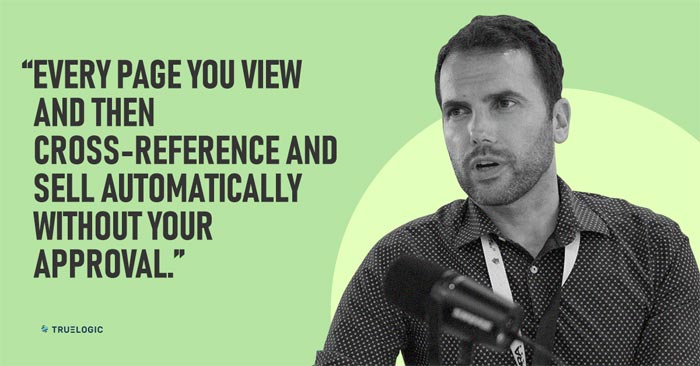The Role of Data Analytics in Digital Marketing and Choosing the Right Tools

Digital marketing is now just as big, if not bigger, than traditional advertising and marketing tools. And you can expect this field to keep evolving as technology continues to change.
However, with the constant barrage of information from various online channels, piecing together a clear picture of your brand’s customer base can feel overwhelming. This is where the importance of data in digital marketing steps in. Through comprehensive data analysis, your team can make effective marketing decisions to support your campaigns.
In this blog, we dive deep into some of today’s most popular digital marketing analytics tools to help you hit your business goals in 2024. Using the right tools and leveraging various digital marketing metrics can help the implementation of your marketing efforts be easier, effectively growing your business in the online space.
Why is Data Analytics Important in Digital Marketing?
The evolution of technology has led to easier access to various information sources. Nowadays, data is king, and learning how to use it is the key to your brand’s success.
But how can it help your brand? What is the importance of web analytics in digital marketing?
1. Understanding Your Audience
Using data analytics lets you peel back the layers of information and truly understand your target audience. Analyzing your brand’s digital traffic and engagement metrics can give you insights into your demographics, user interests, purchasing behavior, and pain points. By tailoring your marketing messages toward your ideal customer’s personality, you open opportunities for conversions through audience analysis.
2. Measuring Campaign Performance
Data analytics equips you with the tools to measure the success of your team’s digital marketing efforts with precision. You can track key metrics like click-through rates (CTR), conversion rates, and engagement rates to see what’s working and what’s not. This data allows you to optimize your campaigns in real time, maximizing your marketing investment.
3. Optimizing Content and Targeting
Analyzing your campaign’s performance is the key to crafting high-performing content. By assessing your strategy’s metrics, you can identify which campaigns are most effective with your audience. Whether it’s TikTok videos, Instagram posts, or Facebook Community messages, this approach ensures you’re allocating your marketing budget effectively and focusing on tactics with the highest potential for success.
Ultimately, the role of data analytics in digital marketing goes beyond simply collecting and storing numbers from your marketing platforms. It’s about extracting actionable insights that fuel effective marketing strategies.
The Best Digital Marketing Analytics Tools
Just like a carpenter needs a hammer and saw to build a house; digital marketing campaigns also need various digital marketing tools to drive more traffic and convert potential leads into customers. The good news is that there’s no shortage of software out there to do the heavy lifting for your marketing strategies.
Social Media

Hootsuite
One of the first-ever social media management tools, Hootsuite lets you plan, create, schedule, and post content on numerous social media platforms such as Facebook, Twitter, LinkedIn, Pinterest, Instagram, Youtube, and TikTok. It allows you to manage and display all the social media information you would want to see without signing in to each other individually.
Using Hootsuite provides you with comprehensive analyses of your marketing campaigns. It can generate custom reports based on the metrics you need to see, allowing for an in-depth assessment of your social media campaigns’ performance. You can even gain insights from social conversations by tracking relevant topics and trends.
Sprout Social
Known for providing excellent customer service, Sprout Social was built to help your brand and customers communicate freely. This all-in-one social media management platform includes tools for publishing, engagement, and analytics.
With this social media management tool, you can create a chatbot that provides automated responses that can resolve customer issues faster and create unique marketing experiences. It can identify trends and actionable insights from social conversations, analyze engagement metrics (likes, comments, shares), and compare competitor strategies by monitoring their social media activities.
Email Marketing

Mailchimp
Founded in 2001, Mailchimp is one of the most famous and widely used email marketing tools. It helps your brand manage and talk to your clients, customers, and other interested parties. With Mailchimp, you can send infinite newsletters and automated emails to those people who’ve signed up for your mailing list. You can build and organize your email list with a form or import your contacts.
Once you’ve sent out your emails, Mailchimp can track key metrics like open rate, CTRs, and unsubscribe rates to measure your campaign’s effectiveness. And since you can manage an emailing list, you can segment them based on the demographics you want to target per campaign. It even has an additional function to test subject lines and email content to optimize your message’s performance.
Moosend
Another email marketing solution is Moosend, which allows your team to manage, track, and generate all of their email campaigns in one place. It offers relatively straightforward capabilities in comparison to Mailchimp, including the ability to create and personalize campaigns, gather user sign-up and opt-in/out information, and generate and segment email subscriber lists. Despite the low cost, it boasts a user-friendly UI, good reporting, and competitive customer support.
Search Engine Optimization (SEO)

Semrush
Semrush is a popular SEO tool for conducting keyword research, competitor analysis, and Google Adwords optimization.
It is an all-in-one Software-as-a-Service (SAAS) platform that features on-page SEO checking, rank tracking, on-page auditing, as well as detailed reporting functions with graphs and plots. If you’re running search engine marketing campaigns, you can easily sort keywords by their competitiveness, pay-per-click value, and search value. Moreover, you can also keep a careful eye on your main rivals to find out what they are up to with just one tool.
Ahrefs
Ahrefs is another SEO platform targeted at digital marketers. It offers a variety of SEO tools for keyword research, site SEO audits, rank tracking, and analyzing your competitors’ organic keyword performance. It also includes useful features that may be used to find the best backlinks for your domain.
Other than that, Ahrefs’ comprehensive health check services are excellent for checking issues with your website or locating areas for improvement. Its mention tracking function is an excellent feature that enables your brand to monitor the social media impact of your content.
Analytics

Google Analytics
Google Analytics has been a standard tool for identifying and monitoring user navigation on your brand’s website. It can provide information on your brand’s traffic acquisition, user behavior analysis, goal tracking, and generates customizable reports. This free website analytics tool offers high-level visual dashboards and reporting for casual users.
With its transition to Google Analytics 4, this tool has enhanced its machine learning capabilities. It seamlessly integrates with major marketing platforms, enabling your brand to collect data from all your other digital platforms in one go.
A few of the additional information new to GA4 are:
- Tracking unique users
- Listing user views given a specific timeframe
- Accounting for the total revenue generated by a user over their lifetime
- User engagement session tracking
Facebook Insights
Facebook Insights examines both Facebook users and accounts or pages connected to your brand’s business page. It allows you to break down user demographics, taking into account factors like age and gender, level of education, profession, and marital status. You can also compare paid publications with organic ones, checking the time and days your followers are online.
Additionally, Facebook offers psychographic information about the values and interests of your audience, which can be used to improve your marketing. This enables you to create more compelling content to expand your audience through detailed Facebook user data.
Using any of these tools offer an easier and more comprehensive data-gathering process that your marketing team can leverage. The only dilemma here is how to select the right tool based on the current goals of your campaigns.
How to Choose the Right Digital Marketing Analytics Tools
Selecting the right digital marketing analytics tools to use for your company’s marketing strategies ultimately depends on your specific needs. A few factors to consider before you finalize a decision are:
- Data Sources: Ensure your brand’s chosen tool can integrate with the data sources you use (website, social media, CRM, etc.) as some may not have capabilities for your platforms.
- Budget: Choose tools that align with your marketing team’s cost allocation. While there are a lot of good-performing free tools available, some functionalities may only be accessible for paid subscribers.
- Ease of Use: Some tools are more user-friendly than others. Consider your technical expertise and choose a system with an intuitive interface.
- Scalability: Since growth is a part of most business plans, ensure the tools you use for campaigns are scalable. This guarantees that it can accommodate your increasing data needs.
Using data analytics for your brand’s marketing campaigns is a smart move through and through. Since these strategies are backed up by detailed information on your consumers, you can accurately pinpoint areas of opportunities and improvements––accurately allocating your resources with minimal waste.
Leverage Data for Your Next Digital Marketing Campaign
Having access to vast amounts of data and managing multiple analytics tools can be overwhelming. With the technicality of each system, it can be inefficient and complicated to learn how to fully utilize each of its advanced functionalities. Since marketing teams generally have multiple roles beyond digital marketing, it’s understandable if they cannot solely keep their focus on one aspect of marketing communications.
This is where Truelogic comes in. As professionals in digital marketing, we understand the challenges you face with online campaigns. With our services, we can craft comprehensive solutions for your brand through data analytics. Our experienced team of digital marketers and analysts can help you with strategizing, data integration, and campaign management, giving you access to tools and expertise that can maximize the potential of your brand’s campaigns.
Contact us today to discuss your digital marketing needs and let us help you achieve sustainable growth for your business!










